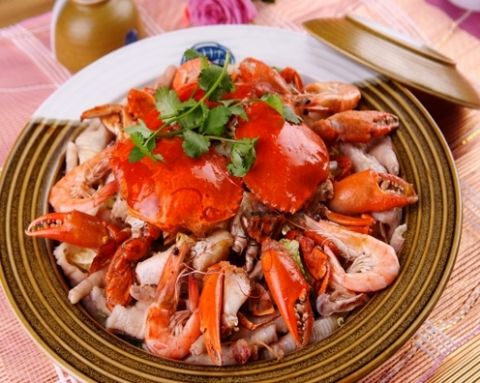Crabs are crustaceans. The number of such biological genetic materials is complex and varies widely, often as many as 100 pairs. Most types of crabs live in the sea or near the ocean. Of course, some crabs also live in fresh water or live on land. Crabs breathe on their backs.
Common crabs include crabs (commonly known as river crabs, hairy crabs, blue crabs, and crabs).
Crabs are rich in protein, trace elements and other nutrients, and have a good tonic effect on the body. In recent years, studies have found that crabs also have anti-tuberculosis effects and eating crabs can greatly benefit tuberculosis rehabilitation. It is generally believed that medicinal herbs are good for freshwater crabs, and seawater crabs are only edible. Chinese medicine believes that crabs have the effects of clearing heat and detoxifying, filling bones, adding muscles, promoting blood circulation, passing meridians, benefiting limbs, renewal of wounds, nourishing liver, filling stomach juices. It has a certain therapeutic effect on congestion, damage, jaundice, low back pain, and rheumatoid arthritis.

Crab therapeutic effect:
Crab cold, taste salty, liver, stomach;
It has the effects of clearing heat and detoxifying, reinforcing bone marrow, raising tendons and bones, activating blood stasis, rejuvenating phlegm, reap limbs, nourishing liver and filling stomach, and filling stomach juice;
For the congestion, jaundice, low back pain and rheumatoid arthritis, etc. have a certain therapeutic effect.
Crab fits the crowd:
suitable for majority of the people
1. It is suitable for bruises, broken bones, blood stasis and swelling, residual maternal placenta, premature labor contraction and weakness, and unsatisfied fetal consumption, especially crab claws.
2. People who have normal spleen-stomach deficiency, loose stools, faint abdominal pain, cold-cold, healed wind, persistent wind disease, and intractable pruritus are not allowed to eat;
3. Menorrhagia, dysmenorrhea, and pregnant women should not eat crabs, especially crab claws.
Crab food phase g:
Crabs must not be eaten with sweet potatoes, squash, honey, oranges, pears, pomegranates, tomatoes, cantaloupe, peanuts, snails, celery, persimmons, rabbits, and Nepeta; eating cold crabs without drinking cold drinks can cause diarrhea.